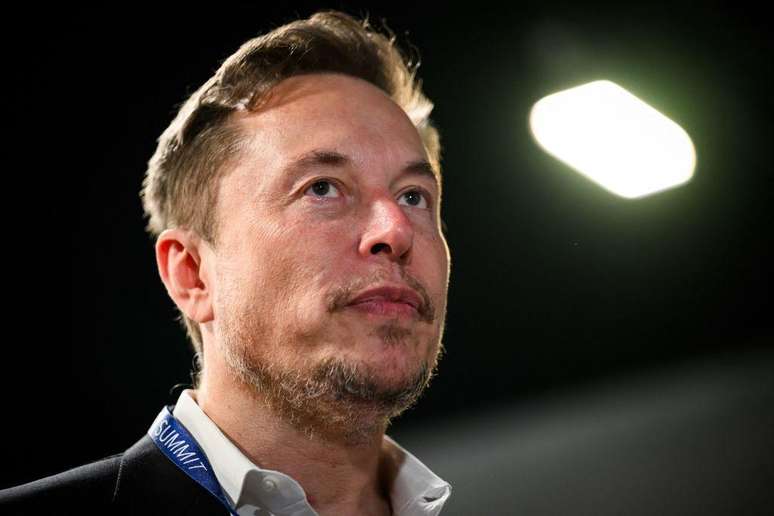Experts interviewed by BBC News Brasil say they assess that the outcome of the crisis between the STF and Elon Musk’s X shows that nation states, if they are tough enough, tend to prevail over businesses.
Demonstration of the strength of the State against the so-called big tech companies; international precedent and cause for concern about the alleged authoritarianism of the Brazilian judiciary.
This is how analysts interviewed by BBC News Brasil assessed the (at least temporary) outcome of the crisis between the Federal Supreme Court (STF) and Elon Musk, owner of X, after the end of the suspension of the platform in Brazil.
“Big tech” is the term typically used to refer to large technology companies such as Google, Meta, X, and Microsoft.
The end of the suspension was decided on Tuesday (8/10) after the company complied with a series of determinations imposed by Minister Alexandre de Moraes. In the early evening yesterday, access to the platform had not yet been re-established, which should happen gradually over the next few hours.
The suspension of the platform in Brazil, the second largest democracy on the American continent and one of the most populous countries in the world, was seen internationally as one of the most concrete episodes of the constant clash between large multinationals in the technology sector and the power of national states.
In late August, when Moraes ordered X’s nationwide suspension, the New York Times classified the case as “the biggest test yet of the billionaire’s efforts.” [Musk] to transform the place [o X] in a digital square where almost everything is possible.”
According to the assessment of experts interviewed by BBC News Brasil, the result of the test is clear: Musk was forced to bow to the decisions of the Brazilian state.
They assess, however, that the “victory” of the Brazilian state in this episode does not mean that new clashes between countries and multinationals like X will not occur and that, in the future, the outcome could be different.
“It’s a constant struggle,” Pablo Ortellado, professor of the Public Policy Management course at EACH-USP, told BBC News Brasil.
International precedents and message to businesses

According to the assessment of the coordinator of the Internet Steering Committee in Brazil (CGI.br), Renata Mielli, the main message sent by the way in which the STF authorized the return of the States.
“This shows that no company is above the institutions of a state. Each country has its own laws and companies must respect the regulatory framework. States cannot be intimidated by blackmail or threats from companies,” Mielli said at BBC News Brazil.
CGI.br is a committee created in 2003 with the aim of establishing guidelines on the use and development of the Internet in Brazil and in which members of the government, the private sector and non-governmental organizations participate.
Mielli said he believes the way the case was handled in Brazil should have an international impact because the conflict experienced in the country also occurs in other places.
“The message of what happened here resonates internationally because the position of some of these tech or social media companies is to push the situation to the limit in an attempt not to submit to local rules. We have seen many countries indicate that they would adopted the position that Brazil adopted it if companies decided not to comply with local regulations,” Mielli said.
X is also currently being questioned in the European Union and has already been the target of judicial or government decisions in countries such as India and Turkey, where X also ended up giving in.
In the European Union, for example, X has been accused of potentially “deceiving” its users by granting an account verification badge at checkout.
The European bloc’s technology regulator said users could be fooled into believing that the identity of those with the blue badge has been verified, when in reality anyone can pay for it.
The regulator said it had found evidence of “malicious actors” abusing the system. Musk responded by saying that the rules imposed by the European Union resulted in “censorship.”
João C. Magalhães, professor of Media, Politics and Democracy at the University of Groningen in the Netherlands, told BBC News Brasil that the outcome of the crisis between STF and is that the nation states win.
“In the end, this is what happens. The state always wins. Nation states are the ones who actually hold the power. Whenever you imagine that big technologies are more powerful than the state, you need to remember that they alone have the power that they hold because the State, in some way, has allowed it,” the professor said.
Magalhães said the situation involving X placed both the STF and Musk’s social network in a position where there was no other decision to make.
“It would be extremely surprising if the STF accepted a company that did not comply with an order […] and for
“Despite appearing powerful, these companies have no armies. They cannot force people to consume their products. The state has a monopoly on force,” he said.
Professor Pablo Ortellado believes that the Brazilian case creates an international precedent.
“Brazil has shown that, with a very tough attitude, it is possible to subject big technologies to the laws. This is something that I think is positive,” he said.
Pillars of the result
In Ortellado’s assessment, Elon Musk’s bow to Brazilian laws came about due to a combination of factors.
“The first factor is that the community of subject matter experts in Brazil agreed with the decision to suspend the platform. Despite some disagreement, there was broad support for this decision,” he said.
The second factor, according to him, was the agreement of part of the press.
“I don’t recall seeing any editorials from any major newspaper or media company taking a stand against this measure,” he said.
According to him, this consensus would have supported the decision of the majority of public opinion.
The other factor he listed was economic.
“He (Musk) had to understand that he risked losing revenue from a major player, given that Brazil holds about 15% of the global Twitter market. Furthermore, Moraes began to burden Starlink (Musk’s satellite company) for make her pay Twitter fines This began to strangle the company financially.
According to Professor João C. Magalhães, one of the main reasons that prevented the FST from giving up the suspension was the politicization of the issue.
“There was a perception that Elon Musk was not just a businessman, but a political actor who enters the Brazilian context as an ally of Bolsonarismo and Bolsonarismo is seen as antidemocratic by the majority of the STF. The politicization of the case is fundamental to understand why the FST decided to do the obvious thing, which was to respect the law instead of seeking negotiation,” he explained.
Elon Musk is seen as a person close to former President Jair Bolsonaro (PL). The two met in person in Brazil in 2022 during the businessman’s visit to the country.
In his profiles, Musk sided with Bolsonaro and even accused Minister Alexandre de Moraes of having interfered in the outcome of the 2022 presidential elections. After the suspension of the X in Brazil, several right-wing politicians and politicians from the Bolsonaro camp intervened in defense of the entrepreneur and criticized the STF.
The other side of the coin

For Pablo Ortellado, another message sent on purpose in 2023.
Part of the decision that led to X’s suspension was Moraes’ reaction to X’s failure to comply with his orders to suspend the accounts of people investigated in the January 2023 case.
“The negative point of this case is that Moraes’ position prevailed and he weighed his hand (in his decisions). I’m not ignoring the fact that Musk has a political agenda, but X’s accusations regarding the banning of accounts they had, appropriately . The way in which the payment of accounts was prohibited does not comply with Brazilian tradition,” he said.
Ortellado said that, until January 8, 2023, the agreement in Brazil was that there was no prior censorship. If an illegal post is detected, it must be deleted. Because of the episode, Moraes began ordering the banning of accounts allegedly linked to the publication of hateful or anti-democracy messages.
“Assuming that an account is about to commit a crime and taking it off the air is preventative censorship,” he said.
Ortellado assessed that, considering the Brazilian context, maintaining the suspension of X until the network has complied with the decisions of the Brazilian judiciary sends a signal of strength. This force, however, can have consequences in different directions.
“The Brazilian case sets an important precedent for other countries in the world. This can be used for good or bad. The message is that if you are tough enough, companies will bend. This can apply to countries with reasonable rules such as in Europe. And they can apply to authoritarian states,” he said.
Renata Mielli said she doesn’t know whether new clashes like the one between National Congress.
He recalled that in 2023 several companies in the sector paid for advertising and conducted a media campaign to convince parliamentarians not to vote on a bill that aimed to regulate the functioning of social networks.
The project met with resistance from right-wing MPs who argued that the rules could penalize right-wing activists and politicians who use social media to demonstrate.
“There is a vaccine against this type of situation only if we have legislation that regulates digital platforms. The National Congress, motivated by its own interests and the strong lobby of big tech, did not appreciate the project and took a decision on the case of fell to the STF,” he said.
For Mielli, until the regulation arrives, companies in the sector should adopt a more cautious attitude regarding whether or not to comply with the orders of the Brazilian Court.
“Any company that provides services in Brazil will think twice before dealing with the Brazilian state again. I have no doubt about that,” he said.
Source: Terra
Rose James is a Gossipify movie and series reviewer known for her in-depth analysis and unique perspective on the latest releases. With a background in film studies, she provides engaging and informative reviews, and keeps readers up to date with industry trends and emerging talents.






-t4ibkqt14qpk.jpg)
